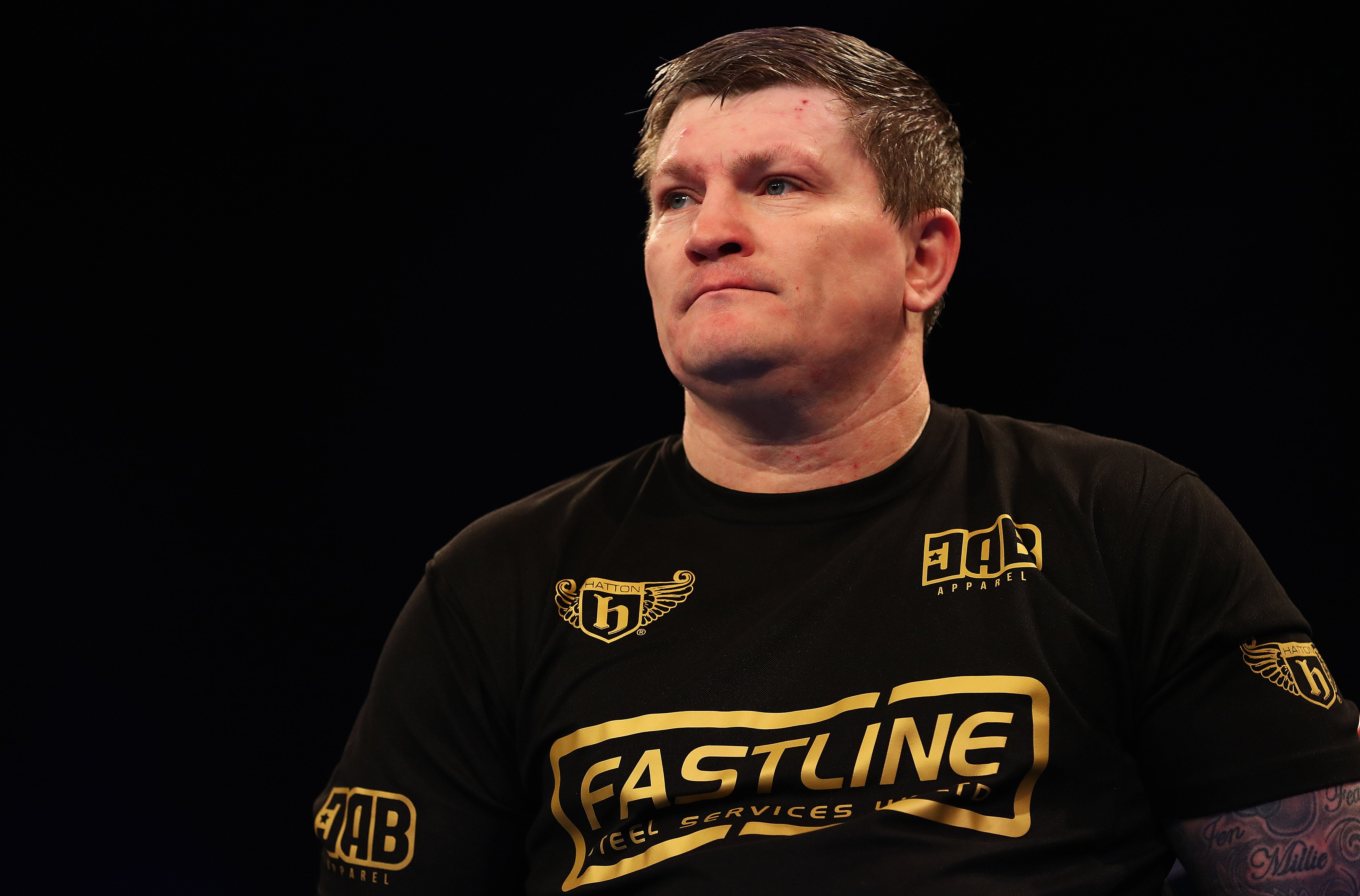Ricky Hatton details mental-health struggles after Floyd Mayweather and Manny Pacquiao defeats
The former world champion was stopped by both men in the two biggest fights of his career

Your support helps us to tell the story
From reproductive rights to climate change to Big Tech, The Independent is on the ground when the story is developing. Whether it's investigating the financials of Elon Musk's pro-Trump PAC or producing our latest documentary, 'The A Word', which shines a light on the American women fighting for reproductive rights, we know how important it is to parse out the facts from the messaging.
At such a critical moment in US history, we need reporters on the ground. Your donation allows us to keep sending journalists to speak to both sides of the story.
The Independent is trusted by Americans across the entire political spectrum. And unlike many other quality news outlets, we choose not to lock Americans out of our reporting and analysis with paywalls. We believe quality journalism should be available to everyone, paid for by those who can afford it.
Your support makes all the difference.Ricky Hatton has opened up on the mental-health struggles he endured after high-profile defeats by Floyd Mayweather and Manny Pacquiao.
Hatton, 43, is preparing to return to the ring for an exhibition bout in July, a decade after the Manchester boxer retired.
Hatton held multiple world titles at light-welterweight and one at welterweight in an impressive professional career that began in 1997 and ended in 2012 with a loss to Vyacheslav Senchenko. Prior to his stoppage defeat by the Ukrainian, Hatton was knocked out by Pacquiao in 2009 and – three bouts prior to that – Mayweather in 2007.
Speaking on The MMA Hour, Hatton revealed how badly the losses to Pacquiao and Mayweather affected him at the time.
“I didn’t care whether I lived or died, you know. There was a few things, the defeat from Floyd Mayweather...
“People would say, ‘Listen, there’s no shame in that,’ which there wasn’t, but in my mind I was devastated. You know what I mean? Because I’m a fighter, a champion. Even though it was Floyd Mayweather, I was still devastated, and it hit me really hard.
“I made a comeback. I boxed at the City of Manchester stadium in my comeback fight in front of 60,000 fans. I’ve always been a big Manchester City fan, and to box at the stadium was brilliant. So, my frame of mind was down after the Mayweather fight, then it was back up after boxing at City.
“But then I fell out with Billy Graham, who was my life-long trainer, because I felt that Billy was having too many injury problems and he couldn’t do the job to the level he used to do. So, me and Billy fell out, which affected me really, really hard, because he wasn’t just my trainer – he was one of my best friends. So, that mentally put me down again.

“Then I boxed Paulie Malignaggi in Vegas and stopped Paulie with a great performance. Then ultimately I got destroyed by Manny Pacquiao in two rounds, which ultimately meant I had to retire. And shortly after the Pacquiao fight, I fell out with my mum and dad, also. So, you can see the snowball effect of mentally where my mind was going.
“When I had to retire, I thought I had no boxing, I had no Billy Graham, I had no mum and dad – who’s been there from day one. I didn’t care if I lived or died.
“I was crying morning, noon and night. It was a horrific, horrific time for me.”
The defeats by Mayweather, Pacquiao and Senchenko marked the only losses of Hatton’s pro career. The “Hitman” retired with a record of 45-3 (12 knockouts).
Hatton, who now primarily works as a trainer, returns to the ring on 2 July to face Marco Antonio Barrera in an exhibition bout at Manchester Arena.
If you are experiencing feelings of distress, or are struggling to cope, you can speak to the Samaritans, in confidence, on 116 123 (UK and ROI), email jo@samaritans.org, or visit the Samaritans website to find details of your nearest branch. If you are based in the USA, and you or someone you know needs mental health assistance right now, call the National Suicide Prevention Helpline on 1-800-273-TALK (8255). This is a free, confidential crisis hotline that is available to everyone 24 hours a day, seven days a week. If you are in another country, you can go to www.befrienders.org to find a helpline near you.
Join our commenting forum
Join thought-provoking conversations, follow other Independent readers and see their replies
Comments